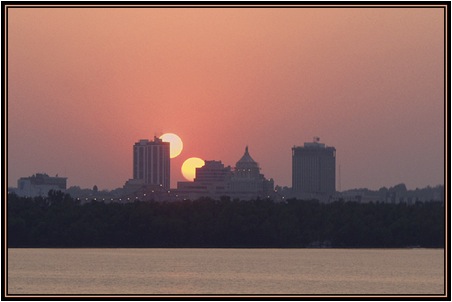I'll get around to seeing it, eventually.
The multi-year buzz around the Force Awakens has reached its deafening crescendo, splashing out across all media, the One Campaign to Rule Them All.
It's in the newspaper I read in the morning. It's on the news my wife half-watches as she gets ready in the morning. It's on the radio as I listen on the way back from dropping her at the metro.
My social media feeds are a riot of memes and posts of all shapes and sizes. Warnings against #spoilers, pictures of tickets and selfies taken in theater, all part of a campaign that has gone literally viral, weaving its memetic influence into both the virtual and meatspace consciousnesses of my peer group.
My curated feeds are the same, as lists created to connect me with the art world and the world of science now yield a healthy smattering of fan-art and "the science of Star Wars" listicles.
Even the pet store is selling Chewbacca chew toys for dogs.
It is inexorable, relentless, bordering on cultural monomania, our collective subconscious consumed by a publicist fueled bout of social OCD. In so far as we understand ourselves through media, Star Wars cannot be escaped.
Only it can.
Because Star Wars is fantasy, and fantasy disappears like a morning fog the moment you step outside of the monkey chatter of mediated existence.
Like this morning, just after dawn, when I walked my dog, as I always do. The morning was colder, almost seasonal, and the wind was rising as a front approached. The air was sharp and the sky was bright and dappled with cloud.
Star Wars was not there.
The cold biting at my hands was unaware of Kylo Ren. The hum of the wind in the trees spoke only of the change in barometric pressure, and had not a thing to say about where Luke Skywalker might be in all of this. My pup showed a remarkable lack of interest in anything other than the squirrel scents and her morning business, and not once mentioned any desire for the aforementioned branded chew toy.
As a narrative, Star Wars stands at a remove from reality. It is wholly play and metaphor, with nothing but language to bind it to the reality of this time and space. It evokes themes from older stories, certainly, deeply mining the classical narratives of humankind. But it does not, itself, have more than a tangential connection to our reality. It does not participate in our world. It remains forever in a different time, and far, far away.
I found myself wondering, as the morning moved on, about the distinction between fantasy and myth. Myths, as Joseph Campbell so clearly laid out for us, are not simply our imaginings. They intentionally frame and connect to the reality we inhabit, giving meaning to both folk and place, casting the familiar in the light of a greater story. They are stories in which we can wholly participate, not just in cosplay, but in the fullness of who we are.
And it's not that cosplay and fantasy are bad or wrong. They are not. They are whimsy, delight, and diversion, and there is a place for that silliness.
Myths are different.
Myths are less like the fantasies of our collective daydreaming, and more like the deep work of our dreams, which sort and organize our encounter with reality in ways that go past our conscious understanding.
I do wonder, in a culture where myth fades and fantasy reigns, how that shapes us.








